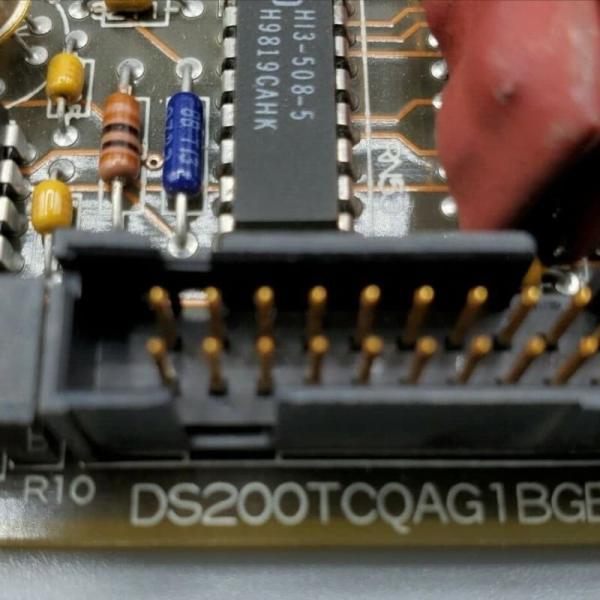| Sign In | Join Free | My burrillandco.com |
|
| Sign In | Join Free | My burrillandco.com |
|
| Ask Lasest Price | |
| Brand Name : | GE |
| Model Number : | DS200TCQAG1BGE |
| Price : | $2500 |
| Payment Terms : | T/T |
| Supply Ability : | 999pcs |
| Delivery Time : | 5-7days |
The GE DS200TCQAG1BGE is a critical RST Analog I/O Board for the Mark V Series, designed to support gas turbine control systems. As a central signal hub, it scales, conditions, and routes a wide array of analog and digital signals from terminal boards on I/O cores to other system components. It handles diverse signals—including LVDT inputs, servo valve outputs, thermocouple data, 4-20 mA signals, vibration inputs, pulse signals, and generator/line data—ensuring accurate signal translation for turbine control. It uses dedicated connectors to streamline signal flow, making it indispensable for maintaining turbine operational precision and safety.
Key Features:
Comprehensive Signal Processing Capabilities
The board excels at managing a broad spectrum of signals critical
to gas turbine operation. It processes inputs from LVDTs (position
sensing), thermocouples, vibration sensors, and magnetic pickups,
while driving outputs to servo valves and relay drivers. It also
conditions 4-20 mA signals—vital for monitoring parameters like
fuel flow and compressor health—and routes generator/line data,
ensuring all signals meet the system’s accuracy requirements for
control and monitoring.This structured design minimizes signal interference and ensures
reliable component communication.
Flexible Hardware & Software Configuration
Hardware customization is enabled via jumpers: J1/J2 select mA
output circuits, J5/J6 set output current ranges, J7 supports RS232
port testing, and J8 activates an oscillator. Software
configuration uses the operator interface’s I/O Configuration
Editor to set constants for thermocouple types, pulse rates,
vibration thresholds, LVDT positions, and 4-20 mA scales—allowing
tailoring to specific turbine needs without hardware overhauls.
Core-Centric Integration
By focusing on R1/R2/R3 cores and interfacing with critical boards
and terminal boards, the board ensures seamless integration into
the Mark V system. It centralizes signal management, reducing
dependencies on multiple discrete components and enhancing overall
system reliability—critical for uninterrupted gas turbine
operation.



|




